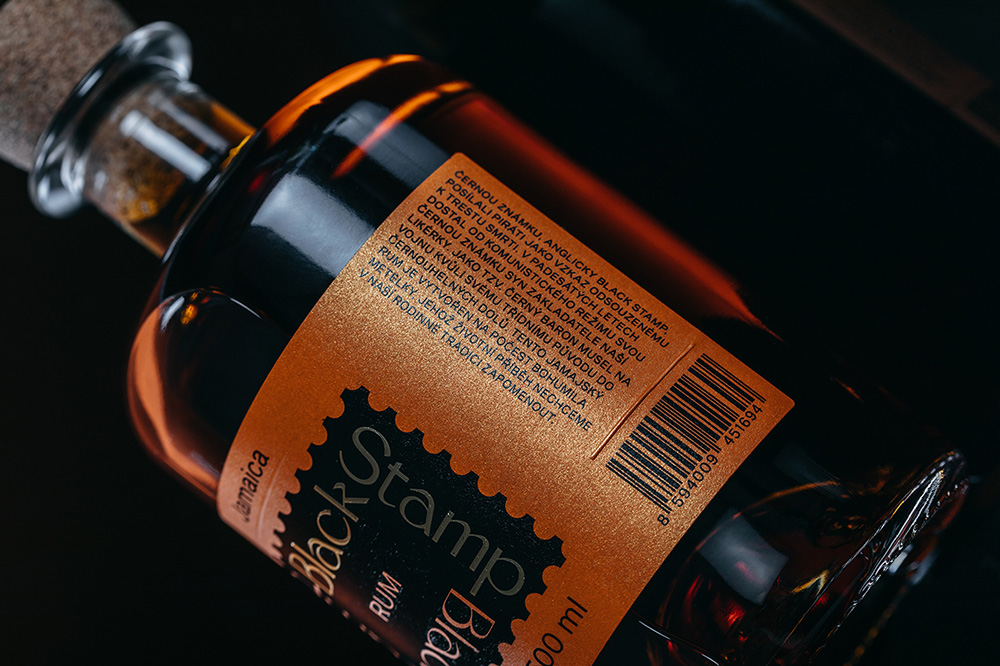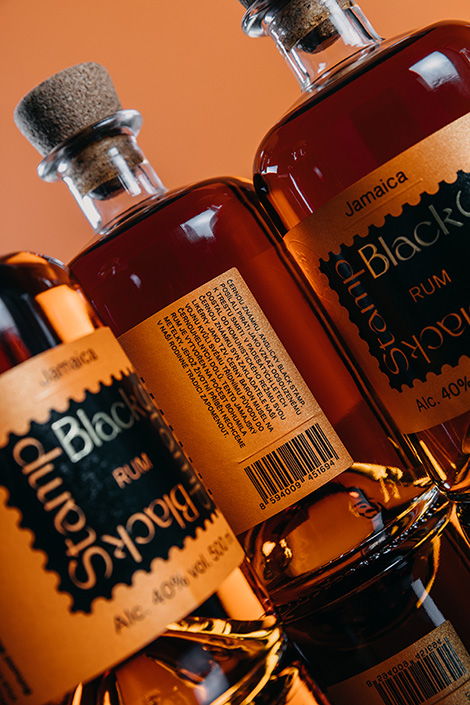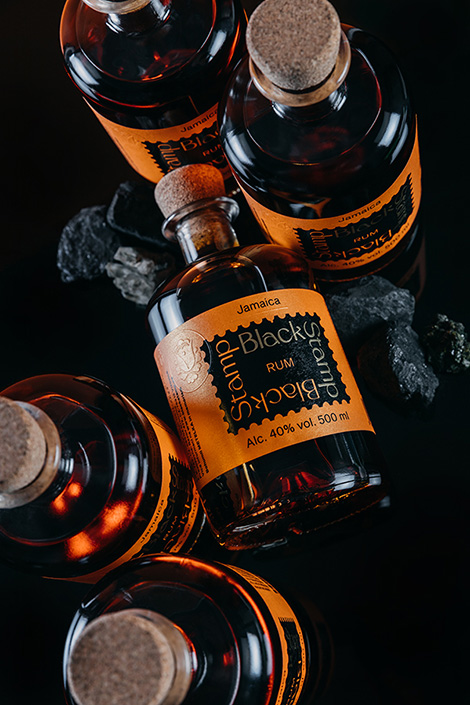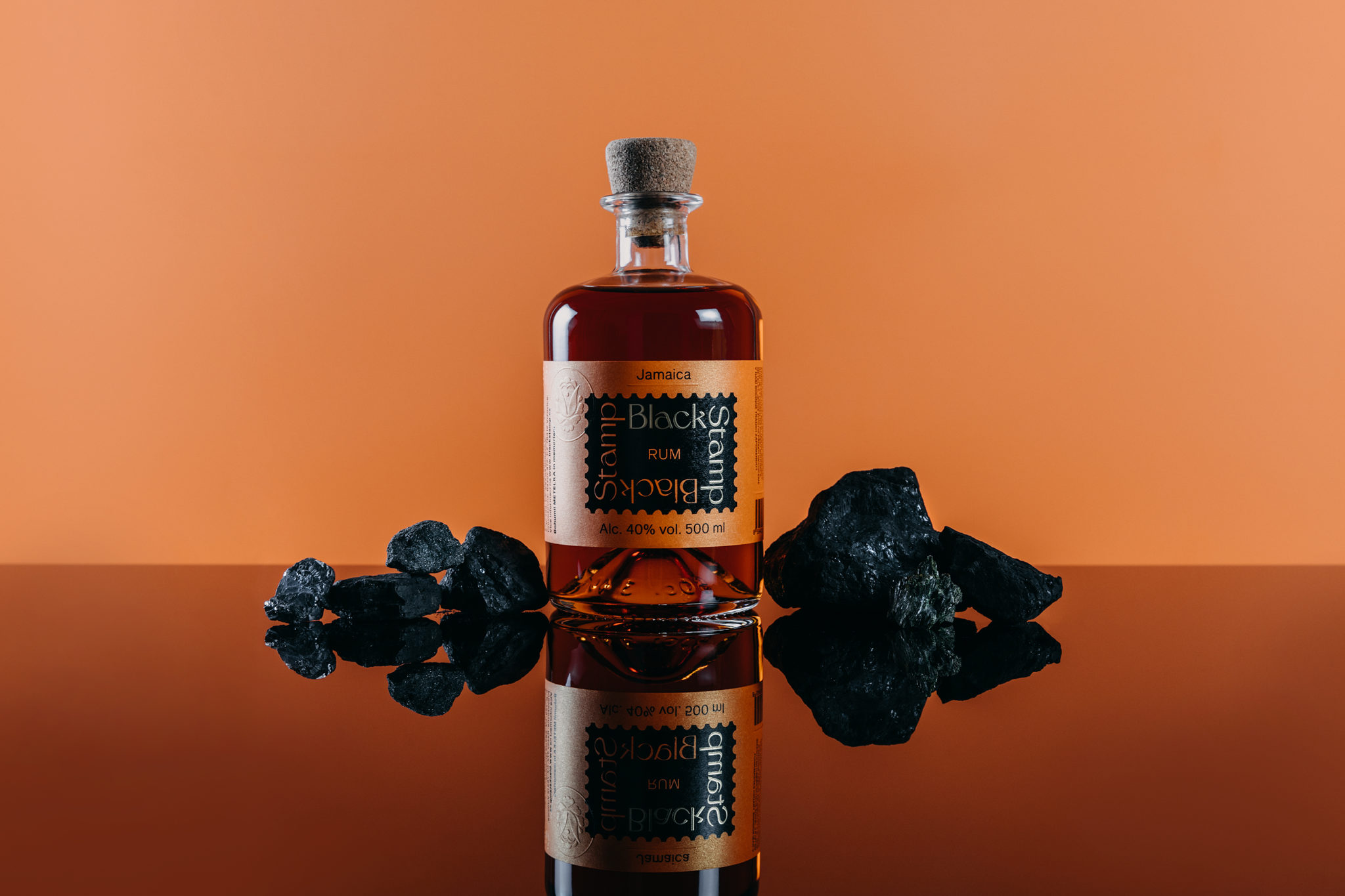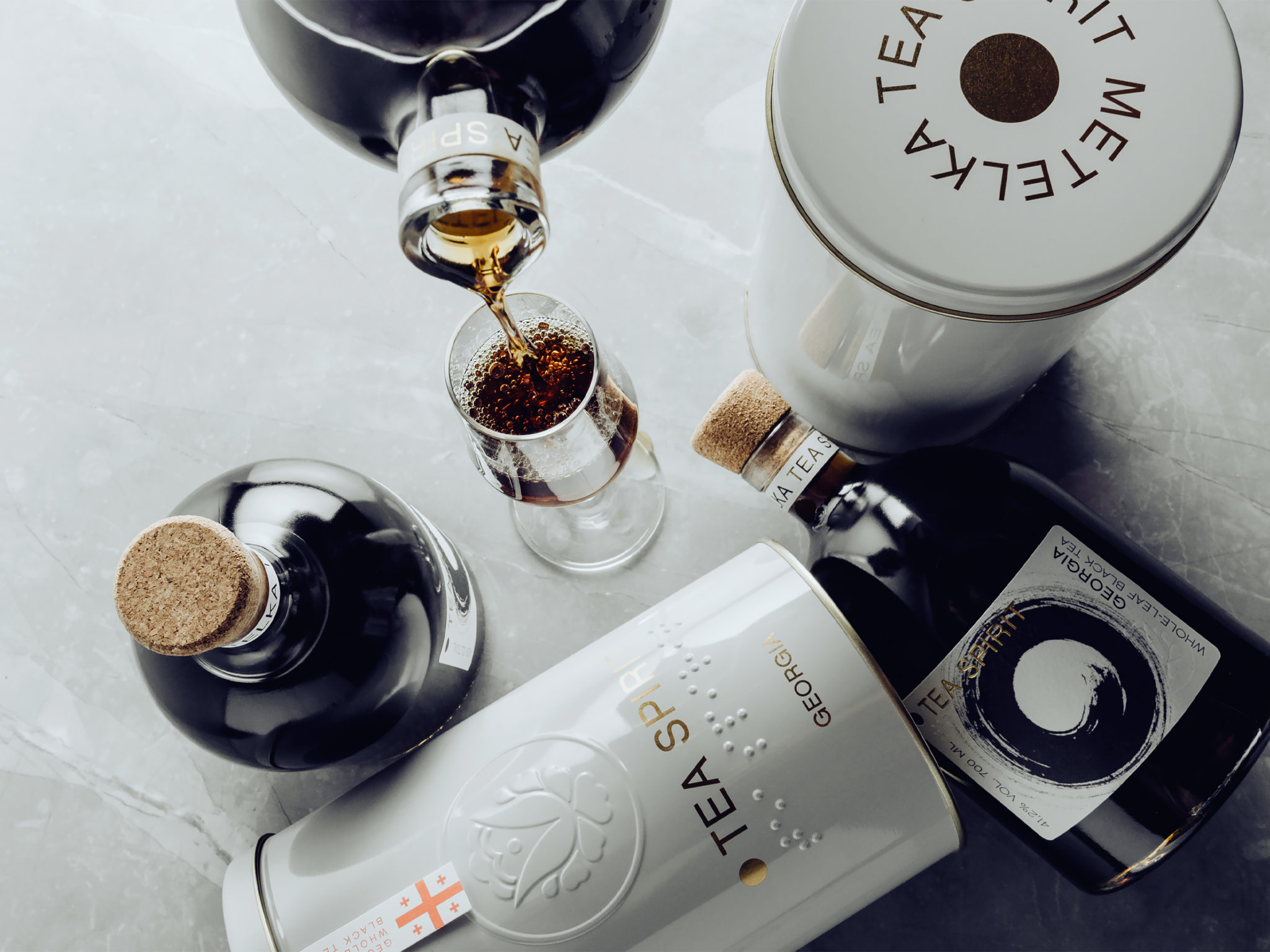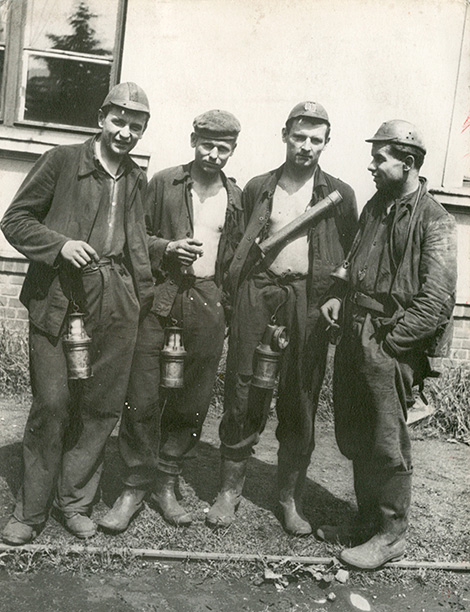
Black Baron Metelka
A black stamp was sent by pirates as a message to a person condemned to death. In the 1950s, the son of the founder of our liqueur business received his black stamp from the communist regime. Because of his class background, he was forced to work in the coal mines and so became what they called a black baron. This Jamaican rum has been created in honor of Bohumil Metelka, whose life story we honor in our family tradition.
Bohumil METELKA in memoriam
← Bohumil Metelka is first from the left
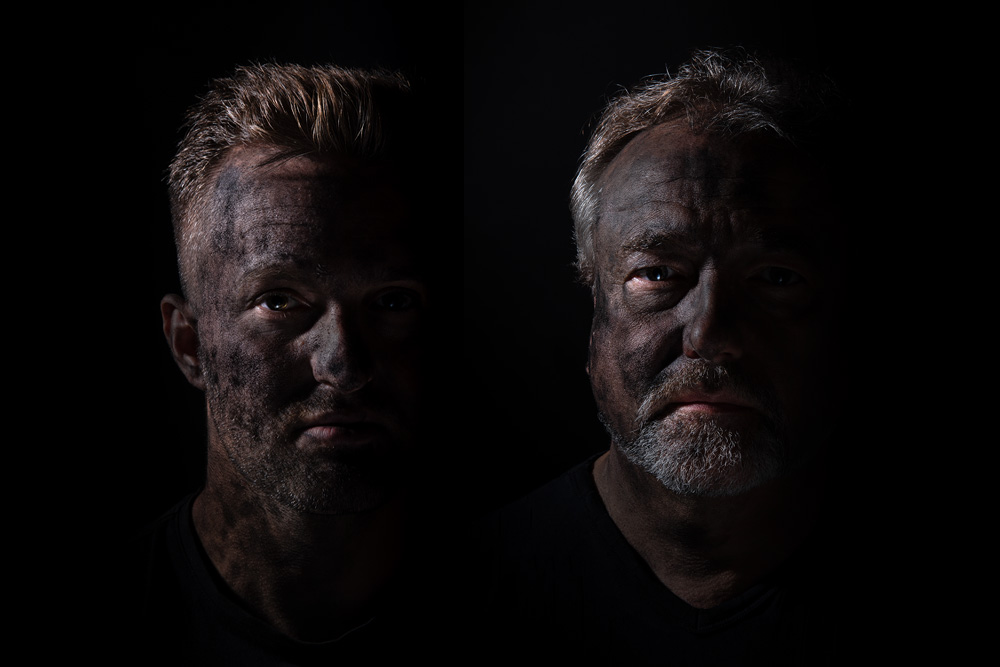
I’m also a black baron · in honor of Bohumil Metelka (Jan and Milan Metelka, grandson and son)
The communist regime in the former Czechoslovakia used various forms of oppression against “unreliable persons” in the 1950s. One of the most common forms of “re-education” was to put intractable young men in labor camps. Members of these so-called “auxiliary technical battalions” were known as “black barons” because they wore black shoulder boards. Bohumil Metelka was one of them. As an alleged member of the “bourgeois youth”, the Communists sent him to a coal mine in Ostrava for more than three years to help build socialism. But let’s get the facts straight here. The fate of the Metelka family could serve as a model example of how the political atmosphere of the 20th century affected the lives of ordinary people.
It all started in 1934, when Antonín Metelka, then 32, decided to expand the menu of drinks in his inn and, in addition to “foreign” distillates, he also poured his own liqueurs and spirits for customers. He started this production with his son Bohumil. At first only for their own needs, but with growing popularity, they began distributing their products throughout South Moravia. Pubs and merchants bought popular brands from them – Režná, Rum, Griotka, Praděd herbal liqueur, the fine bitter liqueur called Wolga, Rosbašský liqueur or Liqueur de Chartreuse. But Metelek also provided products made according to original formulas – for example, a special herbal liqueur for Hubertus hunters.
The expansion of the brand was cut short in 1940 by World War II. Due to high consumption for war purposes, alcohol rationing was introduced. Bohumil Metelka graduated from Prague Liqueur School in 1947 and following the war he wanted to build on his father’s success. But his bold plans got axed a year later. After 1948, the communist regime liquidated all private enterprise. In 1950, they decided that there would be a state monopoly on alcohol, and that meant the end of all private companies. Antonín Metelka lost his license, his facility was taken over by a state company and later was completely abolished.
However, it was not just about liquidating a successful family business. The young, confident and optimistic Bohumil Metelka needed to be proscribed and re-educated. As proof of his “bourgeois” behavior and provocation, the Communists singled out his decision to show up for the May Day parade in a tennis outfit. And so in the same year, when they took away the family’s liqueur business, they sent young Bohumil to the Hedvik mine in Ostrava. For more than three years, they “re-educated” him there with hard work. Being pidgeonholed among politically unreliable people greatly affected his later life and the lives of his family. After his release, he was allowed to work only in the lowest positions of the hospitality industry, as an ordinary waiter or barkeep. It was not until decades later that he managed to get a job in an officers’ restaurant for the Vyškov garrison.
The company named Metelka could only be revived under Bohumil’s son Milan. In 1991, despite his father’s opposition, he launched into it with vigor. He refused to be discouraged and promoted beverages with the unique taste and unmissable logo not only on the domestic market, but also abroad thanks to his connection to the Rudolf Jelínek company. Nevertheless, the liqueur still retains its family character and emphasizes the history and tradition of the brand, as well as the circumstances that accompany the origin and operation of the company. The development of Black Stamp rum is further proof of this.
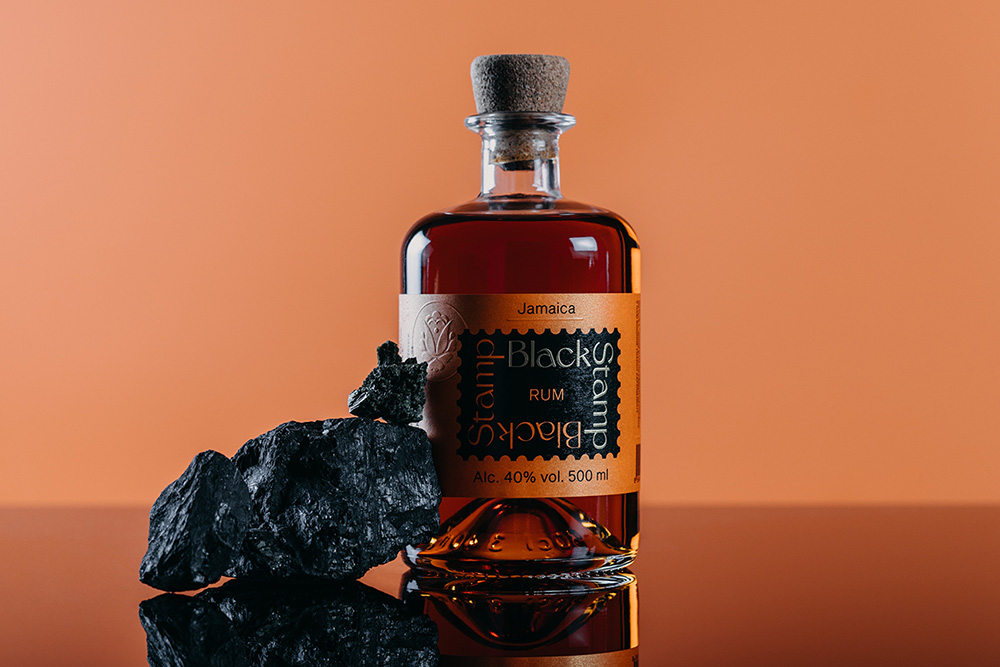
Jamaica and rum are as inseparable as France and wine, Russia and vodka, and the Czech Republic and beer. All these “national” drinks are not exclusive, however, and show that similar high-quality examples may exist anywhere. Black Stamp from METELKA is strong proof of this.
Milan Metelka created an excellent Jamaican rum blended from distillates aged an average of five years in barrels made of white oak. Of course, he could not call it “Jamaican” unless he used fermented molasses from sugar cane and a traditional distillation method called Pot Still. Like other Jamaican rums, Black Stamp achieves a light sweetness and beautiful dark color by mixing the rest of the molasses into the final product. Experts praise the final product of METELKA liqueur for its full and intense rum flavor and aroma with a hint of dried fruit.
Although Black Stamp is the first real sugar cane rum with the METELKA label, the company has extensive experience in the production of a traditional drink named “Blood of the Caribbean”. Milan Metelka’s unique abilities have already been used by several renowned brands to create a formula for real rum. He put this knowledge to use in making Black Stamp.
